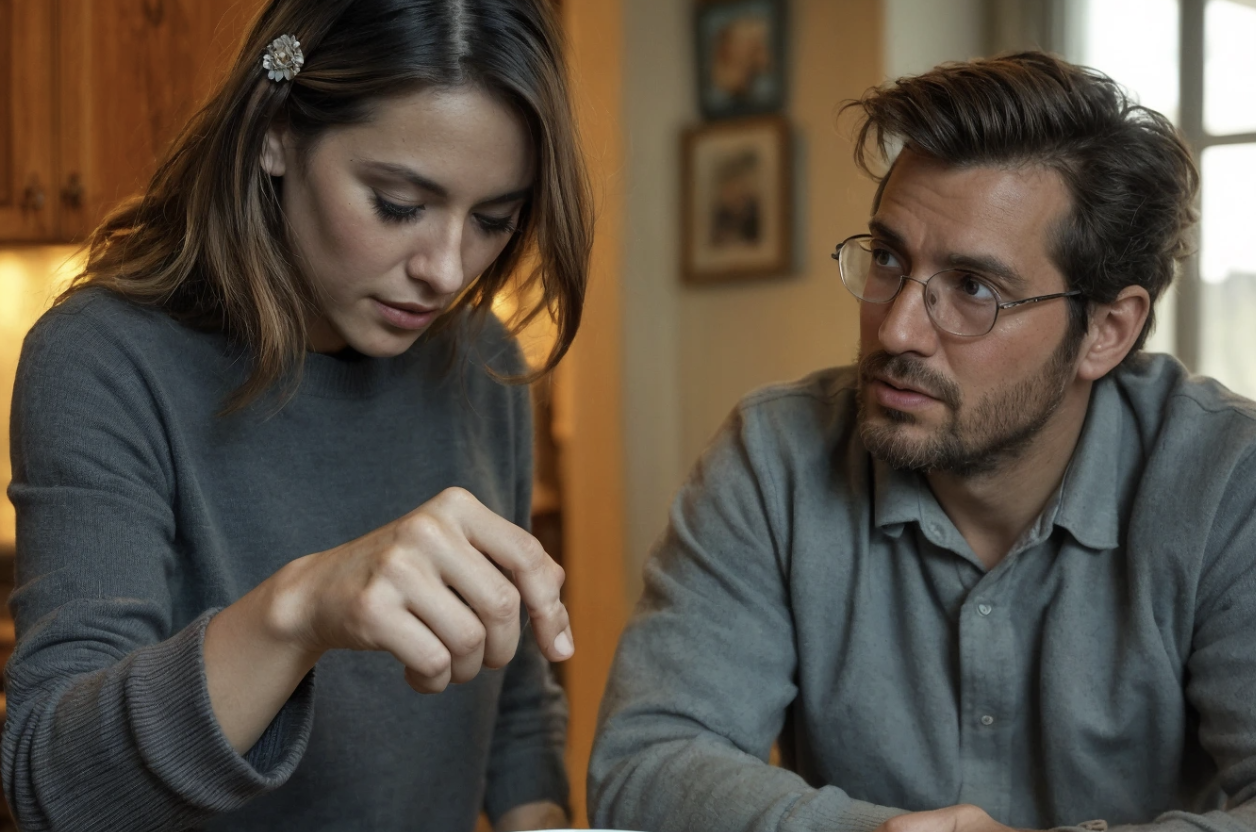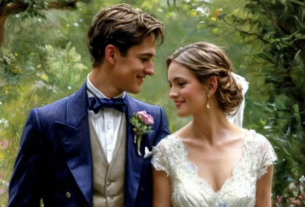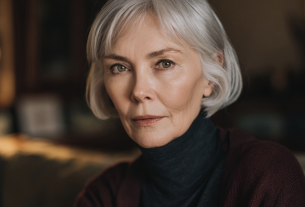The end of summer was unusually hot. The sun blazed mercilessly, as if trying to scorch everything alive. At the crossroads by the roadside, grandmothers had set up with handmade baskets. Inside were homemade apples smelling of orchards, fresh greens, juicy parsley and dill, cucumbers twisted like old cloves, and tomatoes—juicy, fragrant, freshly picked from the garden. Each sold what they had managed to grow: whoever planted what, sold that.
Ivan, returning home after his shift, involuntarily swallowed his saliva. He was in a hurry—Stepanych was already waiting for him in the garage. They had a difficult job ahead with the Volga—a big gray car that looked more like a museum exhibit.
They fiddled for almost three hours, turning, banging, quietly swearing, trying to bring the car back to life. Finally, their efforts were crowned with success. With a satisfied smile, Stepanych called the owner:
“Come pick up your beauty! Like new!”
He immediately called the next client—arranged for tomorrow. Meanwhile, Ivan washed up and headed home. He was almost at the entrance when he suddenly remembered: tomatoes! He turned back—and just in time. Without that bag of greens and ripe tomatoes, Svetlana would definitely have been upset.
At home, dinner was already waiting for him—potatoes, crispy with a golden crust. And Svetlana was at the table, with a clearly displeased look on her face.
“Where have you been wandering? I thought you forgot the way home. The potatoes have gone cold, everything was waiting for you. I cooked especially for your arrival,” she said reproachfully, crossing her arms.
“I brought you tomatoes,” Ivan replied tiredly, handing over the bag.
“I see. But did it take long to buy them? They’re on every corner now. Maybe add some herring? We can warm up the pan?”
While Svetlana fussed in the kitchen, Ivan changed his clothes. She grumbled but did everything with care—slicing bread, salad, getting out the butter. He sat down at the table and attacked the food as if he hadn’t eaten all day. He especially loved potatoes like that—with a golden crust, onions, and a piece of herring. Svetlana watched somewhat sadly, hiding her surprise.
“Want me to pour you something cold?” she offered, looking into his eyes.
“No, no need. Early start tomorrow,” he refused.
She fell silent. She knew lately he barely drank, but he had become more silent, staying late at work. He used to share everything—work, thoughts. Now—not a word.
Svetlana wasn’t a fool. She felt everything. Not drinking—good. Not disappearing—also good. But now he was only physically at home. If he were just going out to friends and drinking heavily, that would be one thing. But now it was like he had retreated inside himself.
“Are you hiding something, Vanya?” she once dared to ask. He just shrugged.
She didn’t know what to think. He was almost fifty—the age that TV called dangerous. Men at this age often lose their minds: get young girlfriends, leave families, marry women who could be their daughters. Later there’s the so-called “love till death,” but that’s later.
Ivan had no money, no apartment downtown, no car. But the age—that same. Svetlana felt it intuitively. She tried to be beautiful: masks, creams, dyed her hair naturally, even gave up her favorite pancakes for a diet.
But here too, she failed. The first thing “left” was what Ivan had always liked about her. She sighed. Her husband hadn’t looked at her the way he used to for a long time. It was all “tired,” “don’t want to,” “not now.” And yet once, she had been beautiful.
One day she decided: enough! She returned to her old diet—and the weight started coming back faster than it left. Then she tried dieting again—kefir, less bread… But nothing helped.
And today—potatoes again, which she had fried in the evening, waiting for her husband. She cooked for him but ate half herself. A little here, a little there… When Ivan came in, she had no appetite left.
Svetlana was angry—more at herself than at him. “He’ll find himself a slim girl,” she thought anxiously.
But they used to live like a family. Two sons, grandchildren growing up sweetly. The sons were far away but called and cared. The daughters-in-law were kind and attentive. Everything seemed fine.
But why was Ivan so changeable? What was happening to him?
Svetlana hid her worries, but inside her anxiety grew. At night she lay awake, staring at the ceiling, puzzling: what if? What if one day he leaves? How would she explain it to the children? What would the daughters-in-law think? How would she live alone in old age?
Today he came home tired and silent again. Late again. Brought tomatoes, greens. Maybe just to cover up? Or just to say something?
“Maybe he already found someone else?” the thought flashed in her mind. She pushed it away, but the pain remained in her chest.
Her imagination painted a picture—a young blonde, with bright lipstick, confident movements, as if she knew her worth. Svetlana felt that such a girl could eclipse her in Ivan’s eyes. At that thought, something painful clenched in her chest—not the body, but the heart, filled with fear of losing her closest person.
“Would I be okay with that if it turned out true?” she asked herself.
No, of course not. But accusing Ivan without proof was pointless. A thief is only a thief when caught. And Ivan was not caught. Yet the thoughts would not leave her alone. Her heart beat anxiously, she could not sleep at night, tossing and turning.
“What should I do?” she whispered to herself in the quiet kitchen. “Make a scene? Have a hysterics? Then he will definitely leave. Maybe even to that one, from my worst nightmares.”
But to remain silent, endure, close her eyes—was unbearable. And she endured. And Ivan stayed out later and later, disappeared in the evenings. For the last six months, she almost never saw him home on time. One thing or another—constant “responsibilities.”
At work, colleagues whispered with sympathy. One of the younger women advised decisively:
“Find that homewrecker! Catch her, pull her hair out!”
But Svetlana was not capable of such revenge. She didn’t even understand how she ended up telling one person, then another, and the story spread through the office. Now everyone—even those never married—felt obliged to give advice.
“Men are like that,” the older ones said. “They fool around, then come back. They want new at first, then they are drawn back to where it’s warm and cozy.”
“If he were rich,” someone added bitterly, “you could endure it. But he’s just an ordinary man. No yacht, no expensive gifts. And without money, love cools quickly.”
Svetlana listened but was in no hurry to act. She feared a sharp move would push Ivan away forever. Somewhere deep inside, a hope burned: he would come to his senses, return, understand that family is the most important thing.
At lunch break, a woman from HR approached Svetlana—older, serious looking. She whispered:
“Let’s go for a walk around the corner… I need a smoke.”
Neither smoked, but the conversation required privacy.
“They say your husband is fooling around?” the HR woman asked bluntly.
Svetlana tensed inside—gossip again.
“I haven’t caught him, haven’t checked… but I suspect—yes,” she answered cautiously.
“I didn’t tell you this,” the woman lowered her voice, “but I have an acquaintance. She had the same story: her husband started drifting away, almost left. She prayed, cried, even asked for advice…”
“And what helped?” Svetlana asked with interest.
“She went to one woman. The woman listened, asked for a photo of the husband and some personal item. Like socks or underwear. Also candles—special ones from Jerusalem. They get them at the temple.”
“Where would I get those?” Svetlana frowned.
“You can order them. The main thing is to bring them. The woman arranges everything in order: herbs at the bottom, the item on top, then the photo. They even used a wedding ring. They light the candle, drip wax through the ring right onto the photo and clothes. The ring is returned, and the bundle is tied in a knot and hidden so no one finds it—on a high shelf, behind a wardrobe, anywhere.”
“That’s all?”
“No. She gave a small vial. Told her to add a little to the food—‘all foolishness and lust will go away.’ After a couple of weeks, the husband was like reborn—came home, became caring, even gave flowers.”
Svetlana listened, trying to remain skeptical, but the thought that it might work crept into her head. Before, she would have laughed it off, thinking witchcraft was nonsense. But now, in a state of anxiety and despair, she was ready to cling to the slightest chance.
“Are you sure it really works?” she asked doubtfully.
“I know the person myself. Saw him afterward—loves his wife, carries her in his arms. And she’s just an ordinary woman, nothing special.”
“And what if it doesn’t help?”
“What do you have to lose?” shrugged the HR woman. “Try it. Maybe something will change. If you want—I can give you the address. Just don’t delay until it’s too late.”
Svetlana wrote down the contacts, went home and began collecting what was needed. She sorted photos for a long time, remembering she also needed to take a personal item of Ivan’s. She first wanted to choose underwear but changed her mind—it was all new, but old T-shirts were there. One he had just taken off yesterday—perfect.
After work, she stopped by the church—luckily, Jerusalem candles were in stock. Bought all six. Then she went to the given address. Everything was as described: a private house, the smell of herbs, dim light inside, a woman whispering incantations. Candles, ring, bouquets of dry herbs—each element had significance.
When the ritual was over, Svetlana carefully listened to further instructions. Thanked her, carefully packed the bundle in her bag, and went home. Ivan was late—a perfect opportunity to hide everything. The bundle lay on the high shelf, the candle was lit, prayers whispered. The vial with the potion was hidden in the kitchen cabinet—where the spices were.
She decided to use it on Saturday morning, as advised.
Already on Saturday, Ivan noticed a change in her behavior.
“Why are you so quiet?” he asked, surprised, sitting at the table. Usually, Svetlana would immediately start scolding, complaining, reminding him he forgot the family. But now—not a word.
“Just tired,” she answered shortly, still wondering if she had done everything right. Had she made a mistake in the ritual?
And then, for the first time in a long while, he himself asked:
“How are the kids?”
Svetlana almost beamed: “Did it work?!”
For the first time in months, she went to bed peacefully, without anxious thoughts.
The next day, she herself called the HR woman and told everything in detail:
“I did everything as instructed: herbs, T-shirt, candles. There was even a queue—people come in droves to that woman. I put the bundle on the high shelf, said prayers, lit the candle. And you know, he came home and just asked: ‘How are you?’ That never happened before!”
“Of course it works!” the woman answered enthusiastically. “A little more—and he’ll stop paying attention to others altogether.”
Inspired by the support, Svetlana eagerly awaited the next Saturday—the day she was to add the potion to his cup. Every evening she lit candles, read prayers. Good thing she had stocked up.
Slowly but surely, the anxiety in her heart calmed. She felt: everything would be fine. Ivan was becoming different—more attentive, more often at home. Svetlana began to believe he would return to the family. And then—pension, years ahead, who else would need him but her? No young girl would want a poor pensioner. And she would accept, forgive, be there. He would understand that she was the only one worthy of his love.
On Friday, Ivan was late. Meanwhile, Svetlana finished her prayers, the last candle burned out… and she waited hopefully for her husband.
She put on water, boiled pasta, fried cutlets. The smell of meat mixed with the aroma of spices. Everything was ready long before his return. He came home tired, as if he had worked all day in harsh conditions. Silently attacked the food, barely talking. After dinner, he collapsed on the bed and instantly fell asleep. Svetlana left the TV on in the background and settled on the couch, dreaming that a new chapter in their life would begin tomorrow. With these thoughts, she peacefully fell asleep, barely holding back a smile in a half-sleep.
In the morning, Ivan woke earlier than usual. He wanted to sleep more—it was a day off—but his body wouldn’t let him. Svetlana, on the other hand, overslept. And she had to add the potion to his cup! She planned to make coffee, thinking the aroma would mask the strange taste. But Ivan decided: tea today.
“Tea, so tea…” Svetlana muttered, watching her husband already sitting at the table, reading the newspaper. “I’ll set everything myself.”
Svetlana took eggs and began beating them—pretending to make an omelet. Though she knew Ivan had already eaten, made himself sandwiches. Fried eggs had always been his favorite breakfast since student days, but today he was full. However, when he noticed his wife fiddling near the spice cabinet, pulling out some unfamiliar vial, he got suspicious.
He tensed internally. Svetlana had never brewed tea at the stove before—she always poured it already at the table. But now she approached the stove, placed cups on the cutting board, and fussed there as if hiding something. Ivan covered his face with the newspaper but watched her every movement.
Svetlana tried to act cautiously: carefully poured liquid from the vial into one of the cups—the one she would give to her husband. He immediately understood which tea was for him. Thoughts swirled: “Did she really dare… poison me? But why? What does this even mean?”
His thoughts fluttered like a flock of frightened birds. To drink or not? If he refused—she would try again. A quick decision was needed. He watched his wife: she finished brewing, placed cups on the table, smiled slightly—seemed all tension was gone. Ivan pretended to read but kept his eyes on the cup.
He reached for a sandwich, took it, but changed his mind. Put it back, scratched his head, and quietly asked:
“Svet, do we have any apricot jam? I want tea with that, not with this bread and sausage.”
“Apricot jam ran out last winter, you ate it all to the last spoon,” she replied. “But there’s new one on the balcony, in a jar. You promised to sort out the pantry…”
“Please bring it,” he asked almost pleadingly. “I’ll get it myself—it’ll take an hour, the tea will get cold.”
Svetlana nodded and left. As soon as the balcony door closed behind her, Ivan swiftly swapped the cups. He remembered well where the jam was—blue jar with a yellow lid, he put it there.
When she returned, he was already drinking tea and eating a sandwich as if nothing had happened. She placed a saucer with jam in front of him and sat nearby. The omelet had cooled by then, but Svetlana still put it on a plate and began to eat.
And she did not even guess that she drank the wrong tea. Ivan, pretending nothing was happening, watched her out of the corner of his eye. When he realized she had finished, he wanted to say something but changed his mind. When he finished himself—Svetlana had already taken the vacuum cleaner and started cleaning.
He decided: they would talk later.
But suddenly Svetlana’s face turned pale, as if the blood drained away. Drops of sweat appeared on her forehead. Ivan noticed how she suddenly went toward the bathroom without looking at him.
After a couple of minutes she came out—pale but trying to hold herself together. Less than a minute later—she disappeared behind the door again. This happened four times in a row. Ivan frowned, asked anxiously:
“Are you really okay, Svet?”
“Probably just ate something bad,” came from behind the door.
“Well, what could you have been poisoned by?” he asked knowingly when she appeared exhausted, leaning against the doorframe. “You didn’t eat anything strange… or drink?”
“Only fried eggs and tea,” she muttered, shaking her head confused, then ran to the bathroom again.
When she finally collapsed on the couch like a rag doll, Ivan decided not to wait any longer:
“Svet, did you put something in my tea? I saw you pouring something from a small bottle we definitely didn’t have before. What was that?”
His wife silently looked away but soon ran off again. Only after the fifth time, when she returned completely exhausted, did she realize hiding was pointless. Ivan was not stupid.
“It was a remedy,” she finally said quietly. “So you’d come home… so you wouldn’t run to other women.”
“Me? Run around?” Ivan was amazed. “Seriously? You think I have someone?”
“Then why do you disappear every evening? Where are you then?”
“In the garage! At Stepanych’s! We help with cars, make money. I wanted to surprise you—buy a fur coat for your anniversary. Yours has completely faded, lost its look…”
Svetlana lowered her eyes. He continued:
“And your healer probably gave you not a love potion but a laxative. I saw you pouring it into my tea. But, sorry, I switched the cups. What you prepared—you drank yourself.”
She looked at him, not believing her ears. He added kindly:
“Remember—don’t suspect without reason, don’t run to old women, don’t poison your husband for no reason.”
Svetlana suddenly burst into tears—from relief, from shame. Through tears she whispered:
“Really, you have no one? Honestly?”
“No one. Only you, Svet. Only you.”
She sobbed again and ran to the bathroom once more. Ivan just shook his head and smiled slightly:
“Love is strong, of course. Only now my stomach hurts badly too.”
Two days later, Svetlana, somewhat recovered, went to work. First thing, she expected the HR woman to come to her—the one always first to know everything. Ivan helped come up with a story, but in the end, Svetlana decided to improvise.
The HR woman, about forty, with a husband working in the same company for more than ten years, as expected, approached first. She pulled Svetlana aside, looking into her eyes with lively interest:
“Well, did it work?”
“It was a miracle!” Svetlana answered enthusiastically. “My husband is glued to me now, follows me around the house, looks into my eyes like he used to in his youth. And on weekends… like a young fiancé!”
The woman squinted:
“What if it’s harmful? After all, it’s a potion…”
“No, no!,” Svetlana waved her hands. “All natural, no chemicals. The old woman said: the main thing is to drink it together. The effect is stronger, and the well-being better.”
With a satisfied smile, she sat at the table, throwing in at the end:
“By the way, today I’ll leave early—my husband promised a romantic evening, dinner by candlelight…”
From the corner of the office, she noticed the HR woman hurriedly taking her phone and calling someone. The next day, the woman was not at work. Svetlana looked with interest into the neighboring department—and her husband was not there either.
“Looks like the potion worked…” she thought with a smile.
And in the evening, Ivan came home with a bag. Took out—a fur coat! Fluffy, soft, a real beauty.
Svetlana shyly looked away, her cheeks blushed. She remembered her suspicions, those strange bottles, all those fears. And Ivan looked at her like the first time. Indeed, something had changed in her. As if the years retreated, shoulders straightened, eyes sparkled anew.



